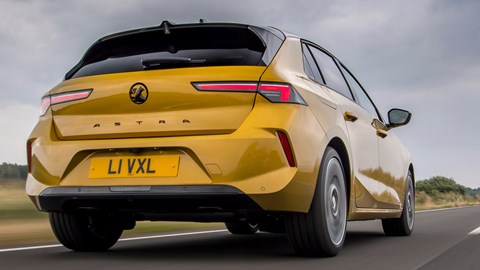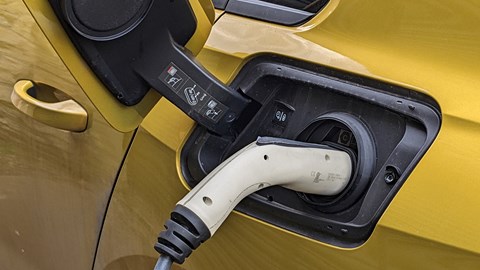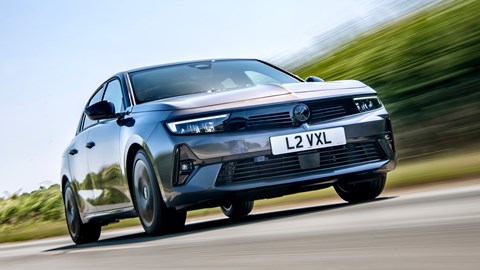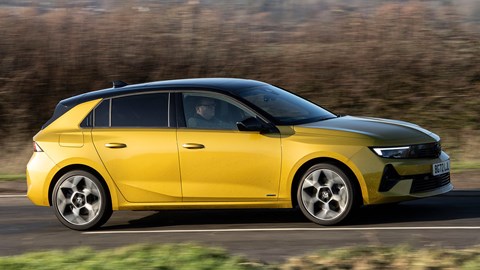► Money saving advice: what is cost of hybrid cars?
► We use the Vauxhall Astra PHEV as an example
► The amount you save will depend on your lifestyle
Electrified cars are becoming the norm – and for good reason. The best hybrid cars offer diesel-beating fuel economy figures (on paper, at least) and enough pure-electric range to allow most drivers to complete their daily commute without burning a drop of petrol.
That means a hybrid car can offer dramatically reduced running costs over an equivalent petrol car. However, they are more expensive to buy and, if you opt for a plug-in hybrid car, you won’t reap the fuel economy benefits if you don’t have somewhere convenient to regularly charge it up.

We wanted to put hybrid technology under the microscope, so we’ve spent some time in a petrol and a plug-in hybrid version of the latest Vauxhall Astra. The question is – will the PHEV always save you money, or could you be just as well off by opting for the cheapest petrol and driving carefully?
Vauxhall Astra initial costs: petrol vs PHEV
A higher purchase price is one of the strongest arguments against plug-in hybrid cars – and the Vauxhall Astra is no different. At the time of writing, the most basic 108bhp 1.2-litre three-cylinder petrol-engined Vauxhall Astra cost £26,960, while prices for cheapest PHEV started from £37,935.
That’s a difference of almost £11,000. If you bought the 108bhp petrol Astra and used that extra cash as your fuel budget, you’d be able to drive for around 70,000 miles. Granted, that’s assuming you can regularly achieve 45mpg – but we found figures like that to be realistic during our testing.
Vauxhall justifies the Astra PHEV’s higher purchase price with some stellar WLTP fuel economy figures. The brand claims it’ll do 256mpg – but it’s important to not take those figures at face value.
Petrol vs PHEV: real-world fuel economy
We found that the 108bhp petrol Astra can reliably return 45mpg. The PHEV Astra is more efficient, but it simply can’t match Vauxhall’s official claims. During our time with the car, we averaged 83.1mpg when driving the car in hybrid mode.
However, we could only achieve those figures when the battery had some charge in it. Once we’d drained the Astra’s electricity reserves, our average fuel economy figures plummeted to 41.7mpg. That means, if you forget to charge (or don’t have the facilities to charge) the Vauxhall Astra PHEV’s battery, it’ll be less efficient than the non-electrified petrol model.
Because of this, the plug-in hybrid Astra won’t suit you if you spend lots of time chewing through miles on the motorway. Drive from London to the Scottish borders and the battery will be empty before you make it halfway, which means you’ll spend most of your journey driving inefficiently unless you’re prepared to find a spare charger at a motorway service station.

To get anywhere close to Vauxhall’s 200mpg-plus fuel economy figures, you need to do lots of short journeys that are within the capabilities of the battery’s maximum range and within easy reach of EV charging ports. That will allow you to spend as much time as possible motoring around on electric power alone.
But therein lies a completely different set of problems. Vauxhall says the most efficient Astra PHEV can drive for up to 42 miles on electric power alone. Spoiler alert – it can’t. During the winter months, the best we could manage was between 17 and 23 miles on electric power.
Petrol vs PHEV: tax
‘But wait,’ we hear you say. ‘What about road tax? Road tax is calculated according to CO2 emissions and PHEVs emit less CO2 than petrol cars, so they’ll be cheaper to tax, right?’ While that’s certainly the case, it doesn’t make enough of a difference to offset the higher purchase price of a PHEV – even when paired with best-case scenario fuel savings.
When we wrote this article, the first year of road tax for a brand new 108bhp 1.2-litre petrol Astra weighed in at £210. From the second year onwards, annual prices were set at £180. The cheapest Astra PHEV, meanwhile, was free to tax for the first year and £170 annually from the second year onwards because it emits less than 50g/km of CO2 in official WLTP testing. That’s only a marginal saving.
However, you can make the tax system work in your favour through other means. The most sensible way to buy an Astra PHEV is as a company car. Like road tax, the amount you pay in Benefit in Kind tax is calculated according to your car’s CO2 emissions – and you can save a huge amount of cash by opting for an eco-friendly car. Consider the following example.

We compared the Benefit in Kind tax rates of two versions of the Vauxhall Astra GS for company car contracts lasting 24 months/20,000 miles. The only thing separating the two cars in terms of spec is their method of propulsion – one is powered by a 128bhp 1.2-litre petrol engine and the other is powered by Vauxhall’s 178bhp 1.6-litre PHEV powertrain.
The P11D value (which is the cost of the car and VAT, excluding the cost of its first year of road tax and registration) of the petrol Astra is £29,590. Because its CO2 emissions stand at 125g/km, it falls into the 30% BiK tax bracket. We’ll spare you the boring details – the upshot is that, if you’re a 20% taxpayer, you’ll pay £1,775.40 per year to have the car on your driveway.
The P11D value of the PHEV Astra stands at £37,880. It’s a much more expensive car but, because its CO2 emissions are far lower at just 23g/km, it falls into the 8% company car tax bracket. So, if you’re a 20% taxpayer, you’ll only pay £606.08 per year for the car. The discounts get even more attractive if you make the switch to the pure-electric Astra. That’ll only set you back £160 every year.
Cost of hybrid cars: the verdict
For most drivers, petrol power is still the best choice. PHEV cars are much more expensive to buy and, unless you can charge them up religiously, they’re less efficient in the real world. We found that, once we’d drained the Astra PHEV’s battery pack, its economy was worse than the pure petrol car’s because we were it to haul around the dead weight of the electrical system.
Petrol cars are still good all-rounders. You get reasonable fuel economy in the town, better fuel economy on the motorway and decent performance on the open road. PHEVs only make sense if you take lots of short journeys and have easy access to a charging port – that way you can use electric power more of the time and cut down your fuel bills.
The one exception to the rule is if you’re renting the Astra PHEV on a company car deal. Because of its lower CO2 emissions, it’ll cost you less money each year than the petrol model, but you’ll have the benefit of driving around in a more expensive and faster car.
